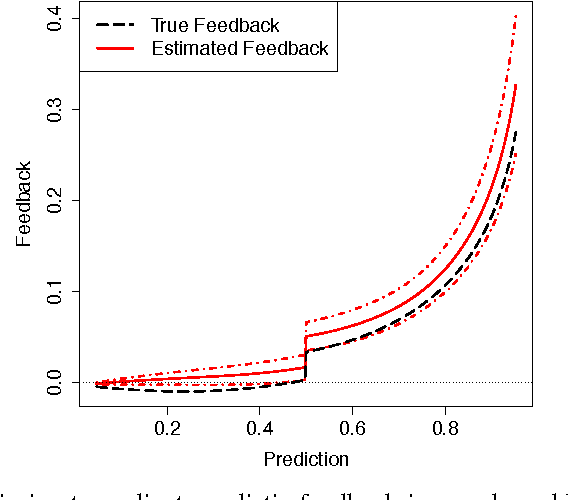Omkar Muralidharan
Feedback Detection for Live Predictors
Nov 01, 2014
Abstract:A predictor that is deployed in a live production system may perturb the features it uses to make predictions. Such a feedback loop can occur, for example, when a model that predicts a certain type of behavior ends up causing the behavior it predicts, thus creating a self-fulfilling prophecy. In this paper we analyze predictor feedback detection as a causal inference problem, and introduce a local randomization scheme that can be used to detect non-linear feedback in real-world problems. We conduct a pilot study for our proposed methodology using a predictive system currently deployed as a part of a search engine.
On Calibrated Predictions for Auction Selection Mechanisms
Nov 16, 2012

Abstract:Calibration is a basic property for prediction systems, and algorithms for achieving it are well-studied in both statistics and machine learning. In many applications, however, the predictions are used to make decisions that select which observations are made. This makes calibration difficult, as adjusting predictions to achieve calibration changes future data. We focus on click-through-rate (CTR) prediction for search ad auctions. Here, CTR predictions are used by an auction that determines which ads are shown, and we want to maximize the value generated by the auction. We show that certain natural notions of calibration can be impossible to achieve, depending on the details of the auction. We also show that it can be impossible to maximize auction efficiency while using calibrated predictions. Finally, we give conditions under which calibration is achievable and simultaneously maximizes auction efficiency: roughly speaking, bids and queries must not contain information about CTRs that is not already captured by the predictions.
 Add to Chrome
Add to Chrome Add to Firefox
Add to Firefox Add to Edge
Add to Edge